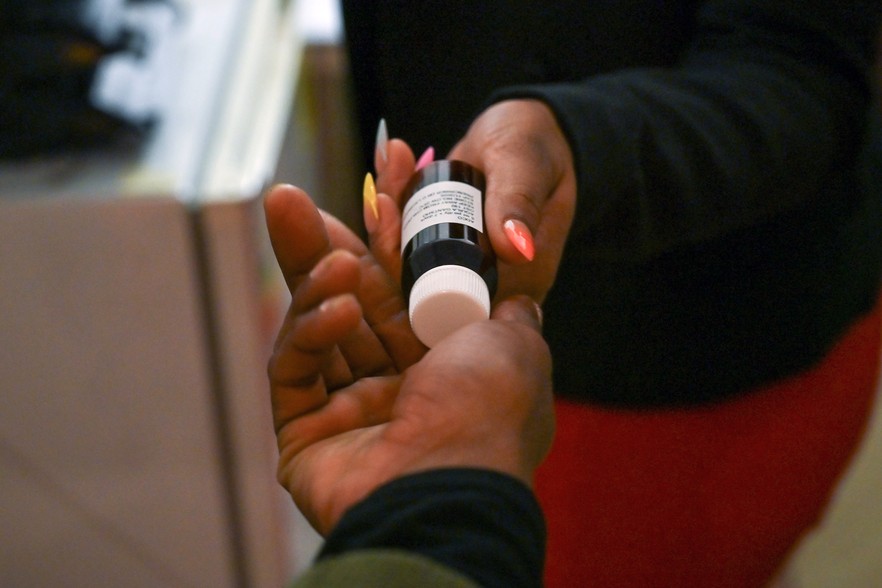Health workers traumatised after being hijacked on duty
One to One Africa provides critical health services to about 100 underserved villages in Ngqeleni
Five health workers from non-profit organisation One to One Africa were a few kilometres outside Mthatha when they were stopped by armed men and hijacked. Archive photo: David Harrison
- A group of community health workers are receiving trauma counselling after they were threatened and hijacked at gunpoint while travelling between towns in the Eastern Cape last week.
- The staff were contracted by One to One Africa, a non-profit organisation that provides health services to about 100 underserved villages in and around Ngqeleni.
- The organisation is calling on police to take urgent action to bring the violent hijackers to book.
On the morning of 7 May, five health workers from non-profit organisation One to One Africa were a few kilometres outside Mthatha when they were stopped by armed men and hijacked. The staff are currently receiving trauma counselling.
The organisation provides health services to more than 100 underserved villages in and around Ngqeleni.
The staff were using a converted 4x4 bakkie as a mobile clinic to give free health checks for children, the elderly and distribute chronic medicines to those who cannot access local clinics.
Eastern Cape police spokesperson Majola Nkohli said it is alleged that three occupants armed with firearms in a white Toyota Hilux forced the vehicle off the road and hijacked it. Nkohli said a case was opened at Ngqeleni police station and is under investigation, but there have been no arrests.
According to the organisation’s director, Gqibelo Dandala, the staff were traumatised. In the vehicle that day were a driver, two field workers, a nurse and a student doctor.
The gunmen abandoned them in a forest and took off with the organisation’s vehicle, with the medication inside.
Dandala had been on the road some distance behind them in another vehicle when he got a call from one of the people who were in the hijacked car.
“Panicked, we drove to the police station to open a case. When we got there, we were not assisted. The police asked a lot of questions and ended up saying the only people who can open the case are the ones who were hijacked. We then contacted the tracker company. This was a very traumatic experience,” said Dandala.
She said it was only when a community leader they worked with in Ngqeleni contacted a retired police officer that they were assisted by the on-duty cops. “By that time, we had already found our people. That’s when the case was opened,” she said.
Village Chief Gideon Vulihlanga Sigcau told GroundUp that the incident has left the community in distress. “Our prayer is that One to One Africa does not leave Ngqeleni because they are our only hope in getting health services,” said Sigcau.
He said the organisation has been working in their villages for years, helping people with medicines, especially children and old people. “Our people are benefiting from their services. I even gave them a site that they can use to do their work,” he said.
Sigcau heads more than ten villages. While there is a clinic, it only has one nurse, he said. “It has been our mission to protect One to One Africa from any criminal activities since we have noticed crime is on the rise here. Most white people have left because of the hijacking. Even tourists hardly visit the coastal areas because of crime,” he said.
Sigcau said they set up a community policing forum to help protest targeted hotspots.
Dandala believes police have been “dragging their feet” in the investigation. She said that at least three other organisations operating in the region have also had similar losses, leaving community field workers fearful of returning to communities.
She said that despite clear evidence that NGOs are being targeted, law enforcement has shown little urgency in tackling this growing crisis.
“One to One Africa urges national and local leaders to intervene, ensuring that the police actively investigate these crimes, dismantle syndicates, and protect humanitarian organisations,” she said.
Support independent journalism
Donate using Payfast

Don't miss out on the latest news
We respect your privacy, and promise we won't spam you.
Next: Ithuba poised to run Lottery for next 12 months — despite legal concerns
Previous: Local solar panel manufacturer imports 99% of its product, court told
© 2025 GroundUp. This article is licensed under a Creative Commons Attribution-NoDerivatives 4.0 International License.
You may republish this article, so long as you credit the authors and GroundUp, and do not change the text. Please include a link back to the original article.
We put an invisible pixel in the article so that we can count traffic to republishers. All analytics tools are solely on our servers. We do not give our logs to any third party. Logs are deleted after two weeks. We do not use any IP address identifying information except to count regional traffic. We are solely interested in counting hits, not tracking users. If you republish, please do not delete the invisible pixel.

